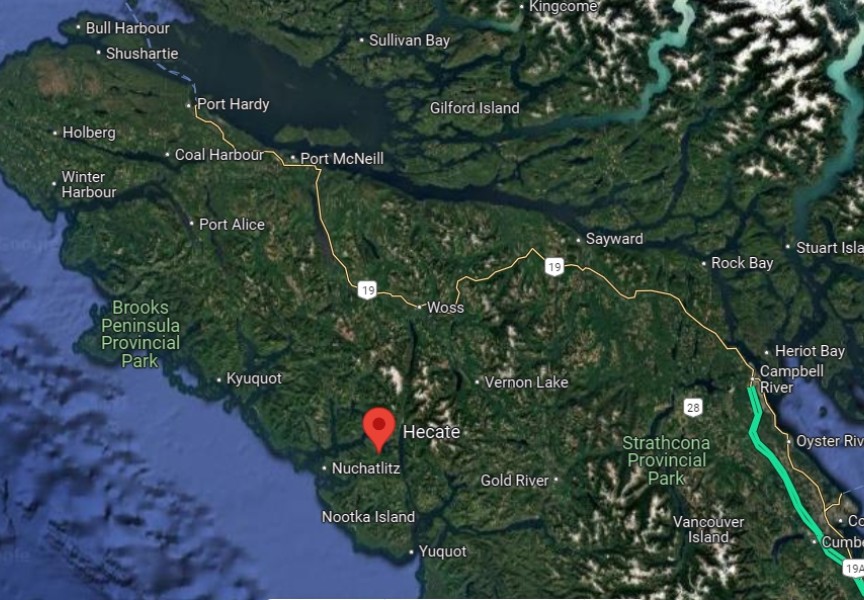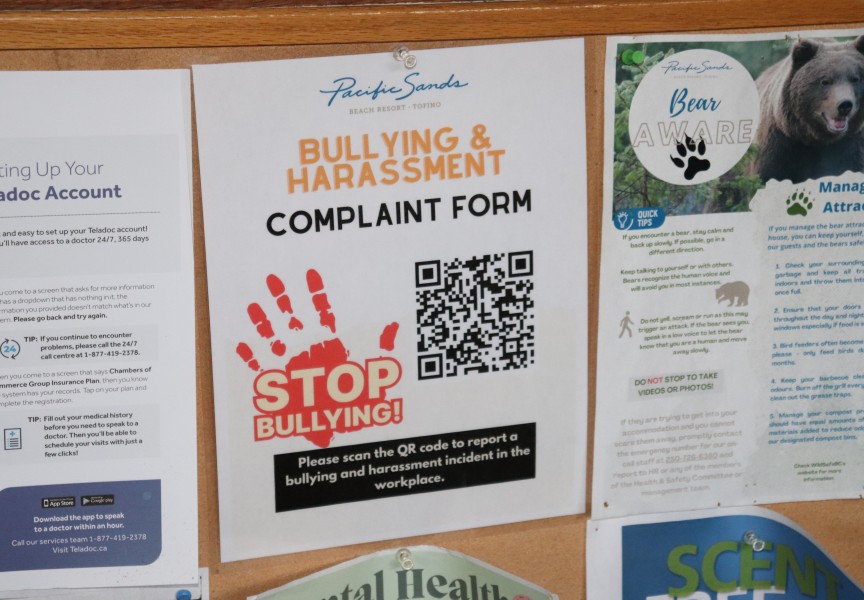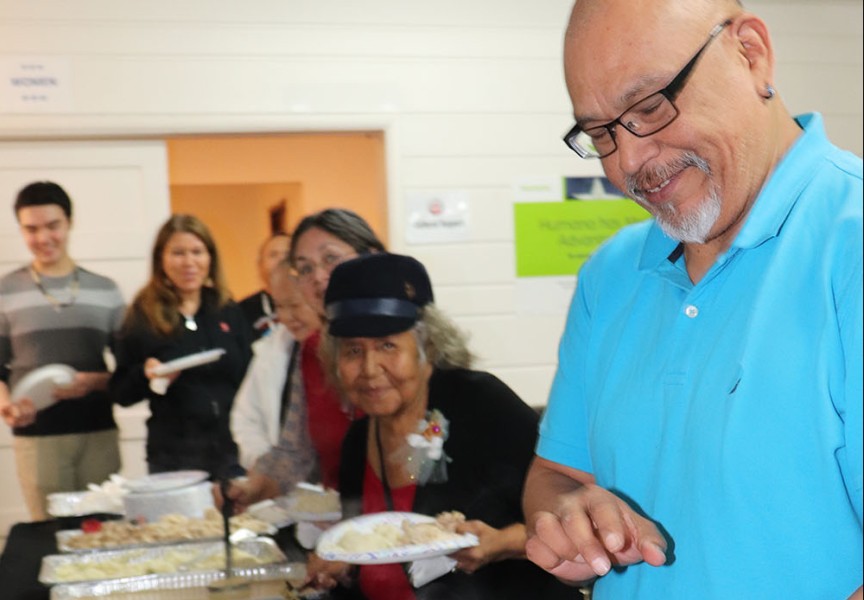One by one, the Ha’wiih around the table made it clear to Fisheries and Oceans Canada (DFO) that the Chiefly territories of the hereditary leaders would remain closed to a commercial herring harvest this spring due to inadequate stocks on the West Coast of Vancouver Island.
And the Ha’wiih told DFO pointedly, they will do everything necessary to protect their Ha’houlthees.
First Nations are “second only to conservation,” said Mexsis (Tom Happynook), chair of the Council of Ha’wiih, “and when the people who are second to conservation have a conservation issue, DFO needs to hear that.”
The Council of Ha’wiih sat with representatives of DFO on Jan. 30 to discuss concerns around fisheries and the herring issue was top of the agenda.
Despite warnings to DFO last fall that stocks in WCVI could not support a commercial fishery, in December Minister Gail Shea decided to open the territory and set the stage for conflict in the courts and on the water.
DFO was warned of this back in September, said Don Hall, Uu-a-thluk Program Manager. “We laid this out to DFO and industry in September and nobody took action.”
“Nuu-chah-nulth feel this was totally avoidable,” Hall said.
The Nations are looking at ways to resolve the situation by reaching out to all those who might have a stake in this year’s fishery. They have garnered support from the fishermen’s union and met with the Canadian Fishing Company in January stressing that the WCVI is a no-go zone for commercial roe herring fisheries in 2015.
Nuu-chah-nulth have asked BC commercial herring fishermen and the herring industry not to select the west coast of Vancouver Island in 2015, and instead fish the abundant herring stocks in the Strait of Georgia or Prince Rupert.
“We are waiting to see if they have heeded our advice,” said Hall.
And the five T’aaq-wiihak Nations, who have a constitutionally-protected right to the fish and sell fish from their territories (proven in the Canadian courts), have decided to take the issue before the Federal Court —again—to seek an injunction of the Minister’s herring decision.
This was done last year when the Minister, acting against the advice of her own department, opened the WCVI to commercial roe herring fisheries.
Archie Little of Nuchatlaht said he found it ironic that the five Nations that went to court to be able to sell fish are the same ones that have to fight DFO in court for conservation.
He said it was sad that the poorest people in the land have had to call for a closure of the fishery that will only benefit the wealthiest people, referring to the large corporations that hold the lion’s share of the herring licences. And this in a 2015 market where prices are low and there is no or little profit to be made by the sale of herring.
“It’s sad that we have to go out on the water to confront these people,” said Little. “We will have people on the water to stop the fishery… Somebody has to come to their senses.”
Whatever the court decides this year, the Ha’wiih are “going to ensure that there will be no commercial fishery,” said Nuu-chah-nulth Tribal Council Vice-President Ken Watts.
It’s not the first time Nuu-chah-nulth have had to take their fight on herring conservation to the water, intercepting the commercial fleet when they enter Nuu-chah-nulth waters. A look back through Ha-Shilth-Sa Newspaper’s archives over the decades, we see that the herring fishery, and DFO’s mismanagement of that fishery, looms large.
That’s because herring is a foundational fish, an important feed fish for other resources, like the West Coast Chinook salmon, and whales, and important for a healthy eco-system, including the sea bed.
Larry Baird with Ucluelet First Nation reminded the DFO representatives that when pushed in the past, Nuu-chah-nulth Nations and fishers shut down Barkley Sound to the commercial roe herring fisheries.
“No one has learned a lesson. I am going to be back out on the water and in court,” he said.
Tom Tatoosh of Hupacasath said he has a great deal of respect for the Nations with herring in their territories and their fight to protect the herring for the future. And he has a vested interest to help them, as Hupacasath relies on herring as the feeder fish to plump up the size of the salmon returning each year to the Salmon Capital of the World in Port Alberni.
“Are there enough feeder fish to support that stock?” he wondered.
DFO South Coast Area Director Andy Thomson was limited in how he could respond to the Ha’wiih because of the pending court action, but he talked about a plan to work with Nuu-chah-nulth on stock assessment in advance of next year’s herring season.






